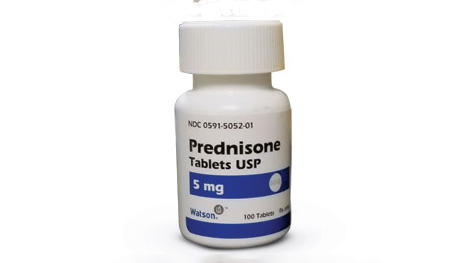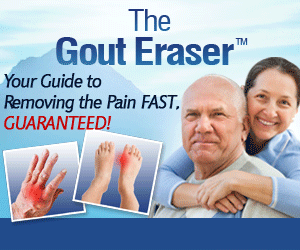
Gout is a painful inflammation that can happen to any man and woman. The most commonly affected part is the big toe. However, is there is a risk of gout in the shoulder? Some patients have complained of pain in their shoulders. They think that gout is the cause of this condition.
The buildup of small uric acid crystals can cause inflammation around the joints. Your cells fight against infection, and thus, you will have inflammation.
Gout attacks are sporadic, and that’s why they affect multiple joints. Gout is manageable with medications and diet. The best gout treatment does not cause complications. But, untreated gout will result in disability.
Can you get gout in your shoulder?
In some cases, it is not easy to diagnose and confirm that your shoulders have gout. Your shoulder ache will become severe, and the part will be
- Red
- Stiff
- Swollen
- Burning and hot
- Sensitive to movement and touch
Causes of gout in the shoulder?
A high level of uric acid in the blood triggers your gout symptoms. When the condition becomes serious, you may have hyperuricemia.
Uric acid, a type of waste product, is created from purine breakdown. Although purines are naturally present in everyone’s body, we take it through our foods. While your body digests these foods, it produces uric acid.
Your kidneys play a role in uric acid removal through urine. When your kidneys do not function properly, there is a uric acid buildup. Your body will have an overproduction of this acid, especially for consuming seafood, red meat, fish, dried beans, and beer.
Alcohol also promotes uric acid retention in your body. That is why you can drink wine at a moderate level to avoid gout.
What are other factors causing gout in your shoulders?
Factors triggering the gout development are-
- Genetic predisposition
- Blood disorders
- Cancers like leukemia
- A little amount of synovial fluid in your joints
- Joint fluid acidity
- Purine-rich foods
- Joint injury, surgery, and infection
- Psoriasis and other similar conditions
Medications that increase the blood uric acid level
- Diuretics– Best for treating heart disorder and high blood pressure.
- Low aspirin doses
- Cyclosporine for suppressing the immune system
- Levodopa- Parkinson’s drug
Gout flare-up duration
It can last 1 to 2 weeks, and then your body will have no inflammatory response. The flare can again come back within six months. Chronic gout is the result of a high uric acid level.
Risk factors of gout in the shoulder
Gender
Mostly, men have a higher risk of gout.
Age
Men over 40 have a high chance of suffering from gout. Women may also have gout after menopause.
Genetics
Gout risk is higher for individuals with particular genes.
Medical conditions
Kidney disorders and surgery are some other risk factors for gout. Untreated diabetes, metabolic syndrome, and several other problems can result in gout.
Diagnosing gout symptoms in the shoulder
Your physician will diagnose your condition, learn about your past medical issues, and ask you to tell you about symptoms. You must clearly inform the healthcare provider about the gout signs. The best professionals also look for other potential causes for shoulder pain after a thorough test.
For instance, X-rays, MRI scans, ultrasound, and other imaging tests will enable them to identify the real cause of gout. A blood test is also necessary to check the uric acid level.
To make the diagnosis more accurate, it is important to test the synovial fluid in your shoulder joint. A laboratory test will help in identifying uric acid crystals. Your general healthcare provider may ask you to consult a rheumatologist for the treatment.
Complications of gout in the shoulder
Those who have chronic gout may have a risk of other complications. Over time, their urate crystals will damage different joints, including the shoulder. Some gout patients have reported the development of kidney stones due to uric acid accumulation. Another risk associated with long-term gout is the production of uric acid nodules in soft tissues. Your toes and fingers may have these nodules known as tophus.
The nodules are not painful and can become infected, inflamed, and oozy. Proper medical treatment helps in the dissolution of these nodules.
Medications for gout in your shoulders
Non-steroidal anti-inflammatory medications are best for treating gout in shoulder. They cure gout by reducing inflammation.
Some commonly prescribed drugs are celecoxib, prednisone, and indomethacin. Prednisone is an injection for your affected joint. However, you may also take it orally while you have gout in several joints.
Based on your symptoms’ severity, your healthcare specialist will prescribe-
- Colchicine to prevent the attack of uric acid crystals to WBC.
- Allopurinol and febuxostat to reduce the uric acid production
- Uricosurics to accelerate the uric acid elimination
Some medications can interact with other drugs and may have side effects. Thus, without your physicians’ consultation, you must not take any medication.
Suggested article: Top 7 Gout Medication – List of Medicines Used to Treat Gout

Does any shoulder pain indicate gout?
You may feel pain in your shoulder due to different reasons –
Rotator cuff injuries
One of the common reasons behind shoulder pain is the repeated overhead motions. For instance, baseball players, carpenters, painters, and several other professionals may have this problem.
Frozen shoulder
Stiffness and pain in your shoulders do not indicate that you have gout. They are symptoms of frozen shoulder and affect the range of motion. Individual with an age group of 40 to 65 years mostly has this problem. You can treat this condition with physical therapy and anti-inflammatory agents.
Shoulder sprain
When the shoulder ligaments are torn away, it causes shoulder sprain. Pain, rapid swelling, and tenderness are the signs of this condition. You have to take medications to alleviate your pain. Ice therapy is also effective in treating a sprain.
Dislocated shoulders
Dislocation is the result of a high range of motion of your shoulder joints. Due to dislocation, bone is not in the proper place in the socket.
Conclusion
Thus, there may be several reasons behind the pain in your shoulder. You must not mistakenly think of it as gout. You have to talk to your healthcare specialist for proper diagnosis.
Suggested articles:
– Gout in Neck – Can you Get Gout in Your Neck?
– Gout and Osteoarthritis – Similarities and Differences
The Gout Eraser™: The all-natural guide for permanent gout removal
The Gout Eraser™ is a short, to the point guide on how to reverse gout symptoms without ever leaving your home. The guide goes into extensive detail on exactly what you need to do to safely, effectively and permanently get rid of gout, and you are GUARANTEED to see dramatic improvements in days if not hours.
To learn more about The Gout Eraser™ system, check out the following free video presentation: The Gout Eraser™





